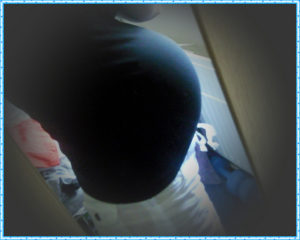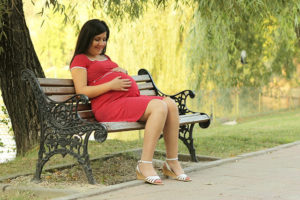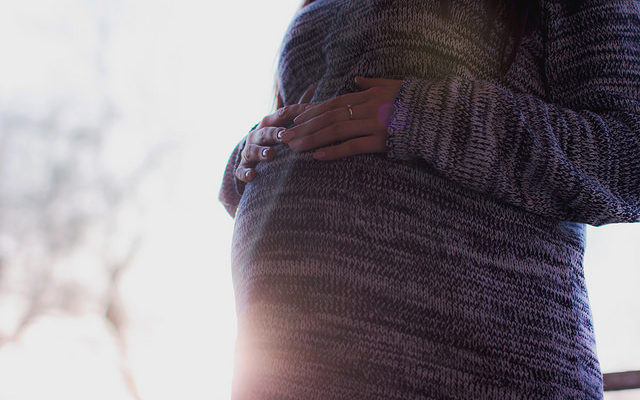The Little Known Dangers Of Bed Rest, Especially When Prescribed For Complications of Pregnancy

Beckie Baby Bump
In modern culture, the prescription of bed rest for pregnant women suffering from complications is surprisingly common. While there may be some benefits to prescribing bed rest, there are also quite a few dangers inherent in this prescription.
Unfortunately, there are not many studies that have directly assessed the effects of bed rest on pregnant women which compare pregnant women on bed rest with a control group not prescribed this restriction. There is only one that has been conducted in this manner, with most of the studies on bed rest having been conducted on elderly patients or those recovering from surgery.
In 1947, the US Army found that patients on bed rest experience peculiar side-effects. Most notably, they excrete more calcium from their bodies in their urine than those not lying in bed. Since calcium is one of the key minerals that regulates blood pressure in the body, prescribing bed rest to a pregnant woman with preeclampsia (high blood pressure) may not be wise for this reason alone.
Perhaps it would be advisable for women with preeclampsia to be prescribed additional calcium and potassium so that the bed rest prescription does not in fact worsen their condition. Other researchers have written about how diets rich in calcium and potassium prevented high blood pressure.
This research in 1947 has been corroborated by other studies, including research in the Nursing and Women’s Health Journal and the Journal of Obstetric, Gynecologic, & Neonatal Nursing, and it is well known that bed rest can cause venous stasis (or lack of blood movement), constipation, bed sores, excessive fluid loss, extra pressure on the heart from the blood migrating to the thoracic area, as well as behavioral and mood changes.

Just Waiting by photosavvy
According to WebMD, a common source of medical information that is approved by the AMA, bedrest is no longer recommended for most conditions of pregnancy. This is due to newer research that shows that bedrest during pregnancy is not so helpful, and may in fact be harmful.
The US Army also discovered that soldiers who had been wounded and were forced to return to battle earlier than recommended actually recovered more quickly than those soldiers with similar injuries that remained in bed. This was surprising, as it was thought, then and now, that bed rest after surgery or injury was for the express purpose of speeding recovery.
Little has changed in practice since the 1940s, and most doctors recommend bed rest as an aid to speed recovery, even though observation seemed to suggest it was ineffective.
According to an article in Nursing Times, bed rest by itself causes dehydration, progressive cardiac deconditioning (making the heart weaker over time, with worsening effects the longer bed rest is practiced), and postural hypotension (or low blood pressure when standing after bed rest, leading to dizziness and fainting).
Bed rest can also cause deep vein thrombosis when prolonged (a deadly condition that can lead to stroke or heart attack depending on where the blood clot or thrombosis migrates to), as well as blood stasis and damage to the blood vessels. All of these conditions are as bad as, if not worse, than the original condition prompting the use of bed rest in the first place.
While obvious that bed rest during pregnancy is controversial, there is little agreement as to whether bed rest is being misused as a front-line defense for the conditions it is commonly used to treat. Most commonly, high blood pressure and diabetes patients receive treatment in this manner.

Pregnancy by Freestocks
However, bed rest itself causes the blood to migrate into the chest area, and put more pressure on the heart, which would seem to indicate that it is not the ideal treatment, since there is increased pressure and strain on the heart. For diabetes, it also causes an apparent increase in kidney stress, which is already an issue for these patients.
Additionally, there are several conditions where the benefits of bed rest may outweigh its potential complications. Conditions affecting the placenta, such as placenta previa (where the placenta blocks the cervix partially or fully), early effacement of the cervix (where the cervix thins to prepare for delivery too early), preterm labor contractions, and vaginal bleeding for an unknown or placenta-related cause, may be the soundest choice for bed rest. Especially considering the fact that there are no other real treatments for these conditions, save allowing a preterm birth to occur naturally or surgically.
There are a number of other placenta-related conditions which are rarer, and also have no other treatment options aside from bed rest. Placenta accreta, increta, and percreta are the most common terms for these complications. Placenta accreta is a condition where the placenta has grown into the lining of the uterine wall. Placenta increta is where the placenta has grown into the uterine wall and muscle of the uterus. And placenta percreta is the condition where the placenta has grown through the uterus and attached itself to another nearby organ, such as the bladder.
The greatest difficulty with these conditions is that they can cause hemorrhage after the birth, since the placenta cannot detach itself from the uterine wall. While bed rest is unlikely in this case to actually do anything positive, most doctors prescribe this course of inactivity anyway, as there is very little they can do to help this condition. The majority of instances of placenta accreta are a result of multiple previous cesarean deliveries.
Most cases of placenta accreta will result in a surgical delivery, and may also result in a hysterectomy if the hemorrhaging cannot be stopped. After birth, the placenta must be delivered as well as the baby, as the body soon sees it as a foreign object needing expulsion. When it cannot be expelled, the uterus will hemorrhage, and this is a life-threatening condition.
It is important, if a woman wants to have more children, that she discusses all possibilities with her doctor for preserving her uterus after the birth of her child. Sometimes, however, it may not be possible even with bed rest and surgical delivery. If she has already suffered from placenta accreta in the past, and has a surgical birth again, her chances of having a placental abnormality are increased with her next pregnancy.

Mommy by Nicu Buculei
So it would seem obvious that the use of bed rest is more a matter of convention than something that is likely to help, especially with the conditions it is commonly prescribed for. Except for cases of vaginal bleeding, preterm labor contractions, and placenta previa, it is very unlikely that prescribing bed rest will help at all, and it may even make the chances of complications worse than without it.
Whenever possible, a pregnant woman who has been prescribed bed rest should seek a second opinion, and thoroughly research her condition to determine if her doctor has made the best choice. It may also help to have a series of prenatal massage sessions, in cases where she has been diagnosed with preeclampsia or gestational diabetes, and to make serious dietary changes so that her condition can improve. It is not unheard of or uncommon for these two conditions to reverse themselves within a couple of months if extra precautions are taken and dietary changes are made.
For high blood pressure, as for gestational diabetes, a diet low in sugar, high in fiber, and sufficient in vitamins such as calcium, potassium, magnesium, and vitamin D, is likely to be much more helpful than bed rest is likely to be. Increasing the intake of these minerals, through diet or supplementation, may also help with some of the conditions that bed rest itself causes, such as increased strain on the heart, loss of calcium, and psychological conditions, such as depression.
No matter what, your health, and the health of your baby are the most important. As a patient, you should be fully informed about all of your health conditions, seek second opinions, and do the necessary research on any conditions that you may have developed during your pregnancy. These are the cornerstones of a vital pregnancy.

Eat Right During Pregnancy
If you do need to practice bed rest, seek approval from your doctor on simple exercises, such as those suggested at American pregnancy, to prevent severe muscle atrophy and cramping that bed rest is known to cause. Even if you are on bed rest, it is possible to have a healthy labor and delivery, and most importantly, a healthy baby.


